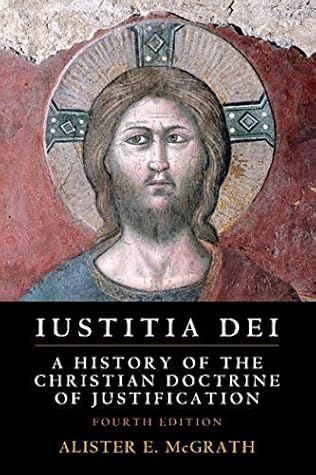Kindle Notes & Highlights
particular importance in relation to his interpretation of the Pauline notion of ‘works of the law’ – a notion that remains difficult to define to this day.
In both his major works Against Heresies and Demonstration of the Apostolic Preaching, Irenaeus makes it clear that this is to be understood as including such cultic requirements as the observation of the Sabbath or the circumcision of males.
However, Irenaeus insists that the Decalogue remains binding for Christians, noting that in some respects Christ expands these requirements – such as extending the prohibition of adultery and murder to additionally include lust and anger.
as Justin Martyr, in his Dialogue with Trypho – would make the point that, as Christ is the ‘new Moses’, he establishes a new law, which displaces that of Moses.
Early Christian reflection on the doctrine of justification in the Greek-speaking eastern church
the linguistic continuity between the Greek text
of the New Testament and its Greek-speaking interpreters.
An example will make this point clear: It has become a commonplace in some quarters to suggest that the dik group of terms – particularly the verb dikaioo, ‘to justify’ – are naturally translated as being ‘treated as righteous’ or ‘reckoned as righteous’, and that Paul’s Greek-speaking readers would have understood him in this way. This may be true at the purely linguistic level; however, the Greek Christian preoccupation with the strongly transformative soteriological metaphor of deification appears to have led to justification being treated in a factitive sense.53 ...
This highlight has been truncated due to consecutive passage length restrictions.
Paul’s term ‘justification (Greek: dikaiÅsis)’ appears to have been assimilated to this transformative narrative framework. John Chrysostom considers this theme in his commentary on Romans, noting that God’s righteousness is given to believers as a result of their faith. ‘For you do not achieve it by toiling and labor, but you receive it by a gift from above, contributing one thing only from your own resources – believing.’55 Chrysostom develops this further in his comments on Romans 3:25, picking up on the idea of the declaration of God’s righteousness. So how are we to
...more
of God’s own righteousness with its actualisation in the transformation of the nature of humanity.56 It is like the declaration of God’s riches, not only in that God is rich, but also in that God makes others rich; or in the same way about [the declaration of God’s] life, not only in that God is living, but also in that God makes the dead to live; and of [the declaration of God’s] power, not only in that God is powerful, but also in that God makes the weak powerful. So the declaration of God’s righteousness is not only that God is righteous, but also that God makes those that are
...more
What God says is. Ours is to say amen. Be it done to me according to thy word.
God spoke and worlds leapt into existence. real worlds.
God spoke and the Virgin conceived after her fiat. Real God and Real Man...Real Flesh and Blood. No world of legal fiction. A world a gravity and sun burns and cold water on parched throats.
No apparent flesh. Actual Flesh torn by Pilate's torturers.
So too, at the Last Supper, "...this is My Body...".
Chrysostom clearly understands justification to be a factitive term, designating a transformation of the believer. This is not inconsistent with God announcing or proclaiming that the believer is righteous; that declaration, however, is understood to be based on an actual change within the believer.


